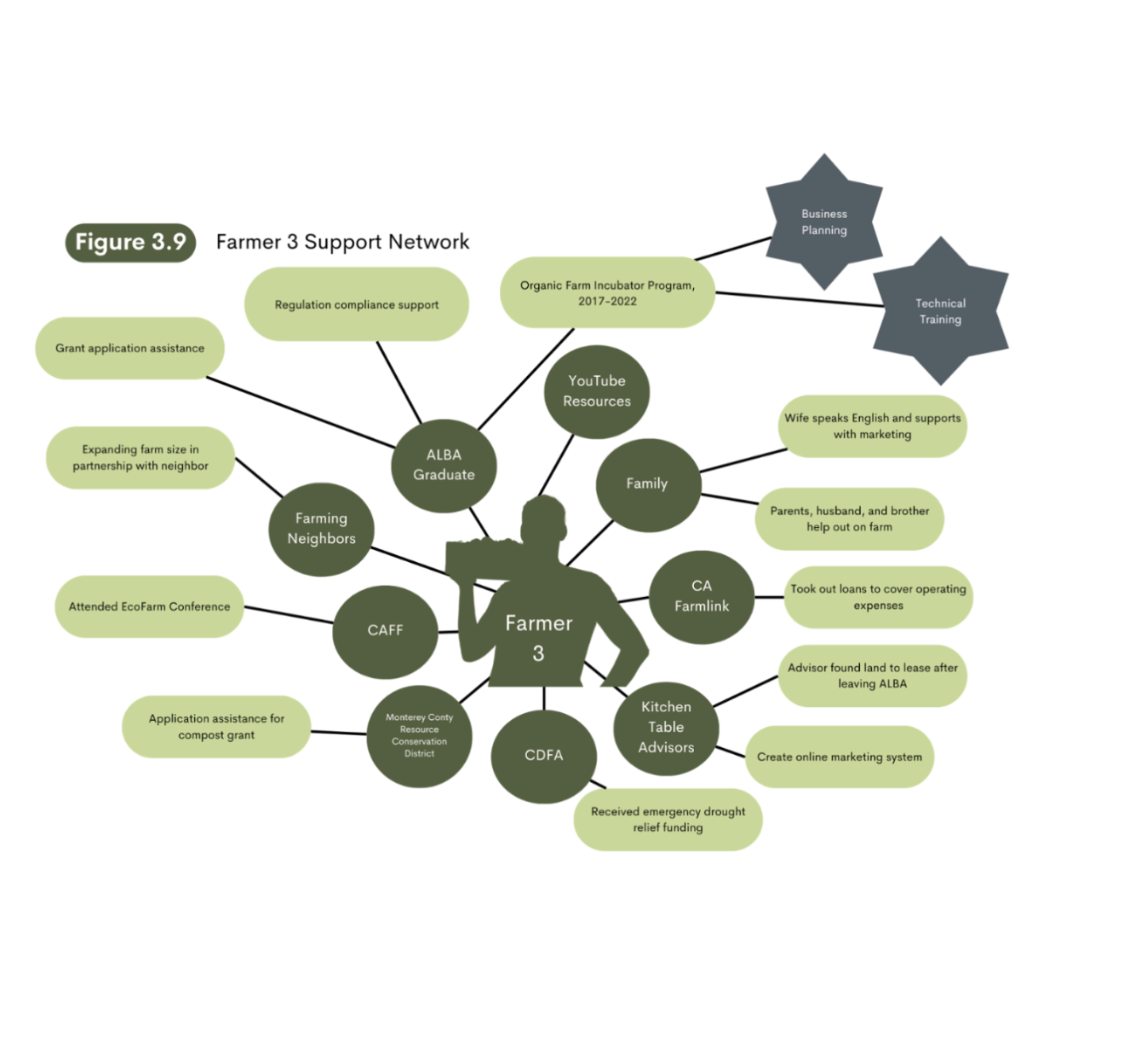Research Report
New Report: Building an Equitable Future with Generational Renewal in California Agriculture
Analysis shows that some young and beginning farmers are able to succeed with complex individualized networks of support.

The Institute for the Study of Societal Issues (ISSI) and faculty affiliates with the Berkeley Food Institute (BFI) at UC Berkeley are pleased to share a new research report on the ecosystem of support for new and aspiring farmers in California: Building an Equitable Future with Generational Renewal in California Agriculture.

Based on two years of policy and field research, the report presents findings on:
- Rural depopulation;
- Motivations of young and beginning farmers;
- Key barriers to entry and success;
- General and individualized networks of support that enable some new farmers to succeed.
The 2022 NASS agricultural census shows a decline or stagnation in young and beginning farmers, and farmers from historically socially disadvantaged (SDA) groups, despite important legislation passed in 2017 to combat past discrimination in the California agri-food system (Farmer Equity Act). Over 90% of California’s farmers are White, with the largest ethnic/racial minority being Hispanic/Latino Origin farmers at 12%. Additionally, young and beginning farmers make up just 20% of farmers in California.
Other Key Trends (2012-2022):
- Young producers (under 35) unchanged at 6%;
- Average age of farmer increased from 57 to 59 years;
- Asian farmers decreased from 6% to 5%.
“Agricultural generational renewal” at federal and state level, the report states, is an issue not well articulated nor prioritized, with the consequence of poorly formulated or inadequate policies.
In-depth interviews with support organizations and young and beginning farmers revealed the main barriers to entry are funding/capital and land access, followed by access to markets, climate (water availability/cost of energy), low prices, and burdensome regulations. Other barriers for particular groups of farmers are language, ethnic background, and citizenship status.

To tackle these challenges, the report shows how non-governmental organizations are making up for the absence of strong government policies with a wide range of targeted support and advocacy at state and federal levels. Figure 3.9 is an example of the individualized network needed, including strong family and community support, for a beginning farmer to survive and succeed (from farmer interview).
“We did not get to a food and farm system where land is highly consolidated, wildly inaccessible, and quite frankly, almost impossible to make a living on as a small-scale beginning farmer … by accident and so we argue that there are really core, structural asks that need to be made and changes that may not look on their face like they directly relate back to beginning farmers, back to farmers of color and other marginalized communities. But they deeply do.” — National Sustainable Agriculture Coalition
The report concludes with a set of recommendations under three main headings:
- Prioritize land access for beginning farmers by making available small, affordable parcels of farmland for long-term rental and sale.
- Enable cash-poor beginning farmers to cover start-up and operating costs at affordable loan terms for the first few years of operation. Introduce pilot direct income support payments for young and beginning farmers.
- Strengthen and unite community mobilization and advocacy efforts to raise the visibility and urgency of an equitable agricultural generational renewal (AGR) as crucial for the future health of California.